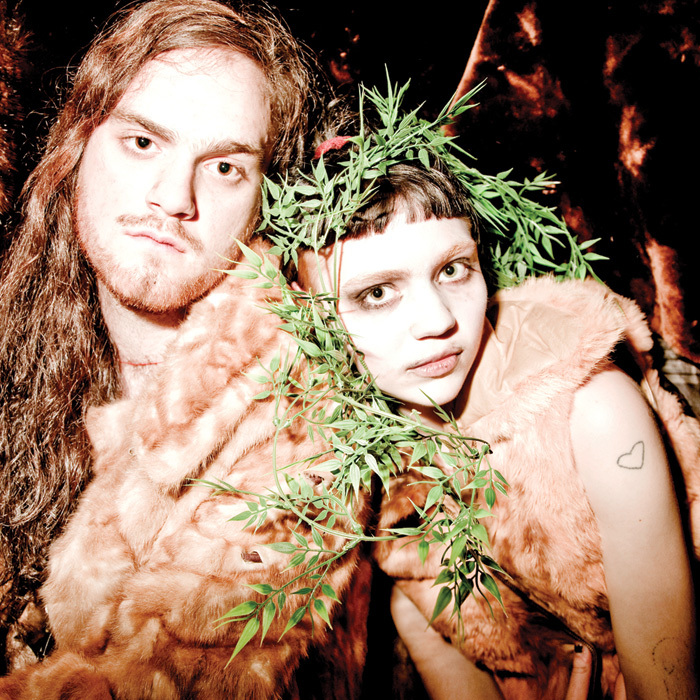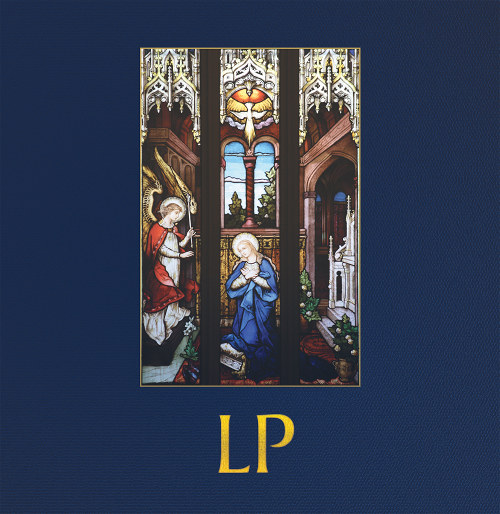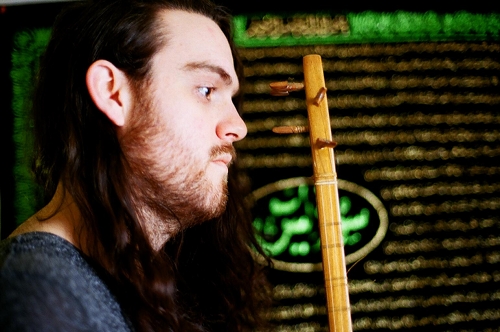Over the past few weeks, during life’s more stressful moments – the morning rush hour traffic, the mountainous pile of washing up – d’Eon’s Music For Keyboards has been a regular fixture.
Its svelte synth jams, hovering somewhere between Brian Eno and Harold Budd’s Plateaux Of Mirrors and the noodlier transmissions of Oneohtrix Point Never, were offered up for free download by the artist himself. As a format, it’s fitting: this is compact, delicate ambient music for the Mediafire age.
What’s more, the album is just a sidenote in d’Eon’s blossoming career – 2010’s Palinopsia, last year’s Darkbloom (a split EP with fellow Montreal resident Grimes) and the forthcoming LP constitute the producer’s “proper” body of work: bright, slightly deranged house music and densely arranged leftfield pop which sits comfortably in the Hippos In Tanks catalogue. Recently returned from the SXSW festival (during which all of his gear was unfortunately lost), d’Eon fielded some questions from FACT’s Angus Finlayson about the forthcoming album, his love for minimalist composers, and his aspirations to become a florist.
“When most people think of improvised music, they think of super-long noodly drones that go nowhere and have no coherence or unifying theme.”
I’ve been really enjoying Music For Keyboards lately. Could you talk about how you went about making those tracks – they sound quite improvisatory, or where they tightly structured?
d’Eon: “Thanks a lot! I’m so glad you dig. All of the tracks are improv with the exception of like two tracks. I did ‘#03’ and ’#05’ in 2003 and they’re the only tracks which were planned out note-by-note. The rest are first takes of keyboard improvisations. I feel like sometimes improvisation gets a bad rep, since when most people think of improvised music, they think of super-long noodly drones that go nowhere and have no coherence or unifying theme. I like setting limits, like I’m only going to play for four minutes, use the same two-chord progression the whole time, and have a main melodic theme that is improvised on the spot but that the track starts with and comes back to.
 “The piano tracks like ‘#84’, ‘#85’ and ‘#118’ were done like that. Some other tracks are definitely more noodly and ‘improvisational’ but the piano tracks are supposed to sound like they were not done on the spot. I wanted to see if I could make tightly structured songs without having written them beforehand. I played a lot of Chopin and Debussy as a kid so I think that helped shape the way those tracks came out.”
“The piano tracks like ‘#84’, ‘#85’ and ‘#118’ were done like that. Some other tracks are definitely more noodly and ‘improvisational’ but the piano tracks are supposed to sound like they were not done on the spot. I wanted to see if I could make tightly structured songs without having written them beforehand. I played a lot of Chopin and Debussy as a kid so I think that helped shape the way those tracks came out.”
Why did you decide to put those tracks out for free – were they offcuts from the album?
d’E: “Most of the tracks were done during the time I was writing and recording the songs from the LP. The LP itself took an excruciatingly long time to finish – I started writing the LP material right after the split with Grimes came out in May, and I just finished this February. Each song on the album took so long to do and involved so much tedious work to make sure every single note and instrument was in its right place, that every once in a while I needed to just play keyboard and come up with a track in one take. I needed to play music that was more immediate. The Music For Keyboards tracks were definitely therapy for the stress of making the LP. I wanted to just release the mixtape for free because it’s immediate, like the music.”
“Listening to Reich and Riley and Arvo Pärt made me realize that some of the most pure and sacred music is music that only consists of notes and nothing else.”
To me those tracks – and a lot of your music – sound very indebted to minimalist composers like Steve Reich and Philip Glass. Would you agree with that? What is it that you find interesting about that kind of music?
d’E: “For sure. I first heard Steve Reich, Terry Riley and Philip Glass when I was 11 years old. I found the Steve Reich 10-CD box set at a library and I listened to every single disc one after the other. As a kid who obviously grew up surrounded by modern pop and dance and rock music, listening to Reich and Riley and Arvo Pärt made me realize that some of the most pure and sacred music is music that only consists of notes and nothing else. Hearing ‘Music for 18 Musicians’ or ‘Tehillim’ or ‘The Desert Music’ [by Reich] or ‘Shri Camel’ [by Riley] opened my ears to 100 percent tonality. And with Reich, so many of his compositions are repetitive, and I had been really into stuff like Underworld and The Orb around the time I found out about his music, and obviously dance music owes everything to what Reich did with repetition, so it was perfect timing.
“Some people make ‘soundscapes’ with lots of crazy synthesis and sound design and production techniques, but people like Reich and Riley make note-scapes instead. Synthesisers and circuits and software and sound effects are man-made, but notes are eternally, inherently present in the universe, and we as people just need to pluck the right frequencies out of the sound spectrum and combine them in ways that are pleasing to the ear. I love listening to and making production-oriented, synthesiser- and sample-based music, but making music with a focus solely on the notes is a holy practice that has been around for tens of thousands of years and will hopefully not be de-emphasised in contemporary music just because we have all kinds of cool technology.”
You’ve been closely linked with Grimes in the past – and obviously you did that split release together. How do you think her recent success has reflected back on you? Do you feel like people still see you as closely related artists?
d’E: “Darkbloom was kind of my ‘Grimes’ songs, and her ‘d’Eon’ songs. We wanted it to be taken as a whole, two musicians meeting in the middle musically. We may have both underestimated how different the Grimes fans are from the d’Eon fans. I feel like our audiences are different, even though we were hoping people would like the whole album rather than choosing one or the other. People compared our music when the record came out, but now I think that many have come to the realisation that our musics are very different from each other.
“We may have both underestimated how different the Grimes fans are from the d’Eon fans.”
“I remember telling Claire almost three years ago that she should be on 4AD, and I always knew she would find a lot of success in her music and her paintings. I don’t have the capacity to tour as much as she does, and I think our careers are very different now. I’m not as comfortable showing my face and being a musician who is out there in the world. She should be a popstar, because she produces her own music and has integrity and a unique voice. I feel more comfortable as a producer and composer.”
 Do you have any plans for future collaborations in that vein?
Do you have any plans for future collaborations in that vein?
d’E: “I’ve been hitting up a few rap artists that I’ve really fallen in love with. I’m hoping to give beats to artists that I think should and will be huge very soon, like Cities Aviv, Antwon, Left Leberra, Stash Marina, Dark Sister, etc. Last year I collaborated with a good friend of mine named Marie Jane on a Cassie cover, and I’m hoping to get MCs, female vocals from MJ, Claire, my good friend Mekele Nocture, my buddy Cadence Weapon, and my girlfriend Sarah, on tracks for a mixtape.”
Would you identify yourself as a distinctively Montreal artist – do you think there’s a defined sound coming out of the city?
d’E: “I love Montreal more than any other city, and I feel a deep connection with the music community here. The first show that I played in Montreal was about three years ago, with Grimes, Tonstartssbandht, The Pop Winds and I think Braids. I was in a band a couple years ago called Omon Ra II, and we released a split cassette with Dirty Beaches in 2010. Claire and I played shows for 10 people in her apartment, but we all knew each other. My girlfriend was the doorgirl of the most notorious underground club in Montreal, and for a while the entire music community was based around a handful of loft spaces. Montreal’s dance music community has a lot of disco music, and my mother used to be a disco queen when she was my age. So because of all of those things I have a huge amount of love for Montreal.
“Sometimes I do feel like an outsider though. After Darkbloom was released I immediately started working on the LP and stopped socialising with anybody or going to shows or participating in the scene. I regret having fallen off in the Montreal community of late, but I think it needed to be done to finish the album. Another thing that I really think is important is the support that the community in my hometown Halifax, Nova Scotia has given me and my friends over the years. I was in an industrial noise band about seven years ago in Halifax, and felt a lot of reciprocal love for noise bands around that time in Halifax, like Shitcook, Torso, Be Bad, Omon Ra, Attack Mode, Gilbert Switzer and Slug Bait. The Electric Voice label [to which d’Eon recently contributed a track, ‘Transparency III’] comes from that community of Nova Scotian artists, and Halifax should definitely be recognized by the world for its music.”
 Regarding the new album, how would you say it differs from your past releases? It seemed to me like you were moving in a poppier, more “song”-oriented direction with Darkbloom, but then ‘Transparency III’ on the new Electric Voice compilation seems like a departure from your past work.
Regarding the new album, how would you say it differs from your past releases? It seemed to me like you were moving in a poppier, more “song”-oriented direction with Darkbloom, but then ‘Transparency III’ on the new Electric Voice compilation seems like a departure from your past work.
d’E: “The LP is definitely a pop album. It continues from the material on Darkbloom, but it sounds different for sure. Most of the songs follow a two-chord progression just like Darkbloom and Palinopsia but there are a lot more notes. Lyrically the album is about the angel Gabriel, so I wanted the music to reflect the lyrics. When Gabriel appeared to Muhammad he had 600 wings, and so I wanted there to be around 600 notes per 16 or 32 bars, to sort of make an audio image of the sight of the wings of Gabriel.
“The album is arranged like Darkbloom – three to four songs on one LP side that all flow into each other almost as one long track, but the LP will be that times four – four sides of about 20 minutes, each side having three to four tracks that fit into a whole. Both Palinopsia and Darkbloom have lyrics that are religious in nature, but the references were a lot more veiled than they are on the LP. ‘Transparency III’ is an extension of Transparencies I and II. The album, which has Transparencies II and IV on it, is, like the number two itself – in the middle between the first and the third. They are pop songs but they have lots of notes.”
How has your approach changed or expanded with this album? Are you still working in a windowless room?
d’E: “Thankfully I moved into a room with a window, in a mostly south Asian neighbourhood in Montreal. Other than that the actual process of recording has not really changed. I use a keyboard and a MIDI tracker to record and score out all the instrumental parts. Everything was recorded either on my bed or my girlfriend’s bed over the course of nine months. In the past I’ve never really used samples very much other than single drum hits, but on this LP there is one song with a sampled loop.”
“I want to arrange flowers and make beats for popstars.”
I heard all your gear got lost during SXSW – how did that happen? Does that mean live shows are on hold for now?
d’E: “I really don’t know what happened to it, but my equipment was totally gone one day. For all the rest of my shows I played Music For Keyboards material on a borrowed keyboard. Those sets went over better than the pop sets. I think God was telling me that I need to focus more on keyboard playing. I still want to sing the songs live but I want to re-emphasise the keyboard, maybe even get another keyboard player for shows. I will probably play some shows in the next few months but I really want to focus myself for a while and figure out how to make a compelling live show that fits with the themes of the LP.”
Finally, what are your plans after the album drops – a tour, more recording?
d’E: “I want to record lots more keyboard material, and if I’m lucky, hopefully do another couple of mixtapes and/or another record by the end of the year. I feel that I’ll tour at least once this year, but I don’t see myself being a full-on touring musician. Right now I’m preparing to hopefully go to school in the next couple of months to become a florist. I want to eventually be able to produce for rap artists and other singers, and someday make a living as a producer and songwriter for other artists, or scoring films. I have always really looked up to Pharrell, because he is a keyboardist, and has done so much good work for so many good people, and has made a life for himself doing what he is good at. I want to arrange flowers and make beats for popstars.”
Angus Finlayson






























